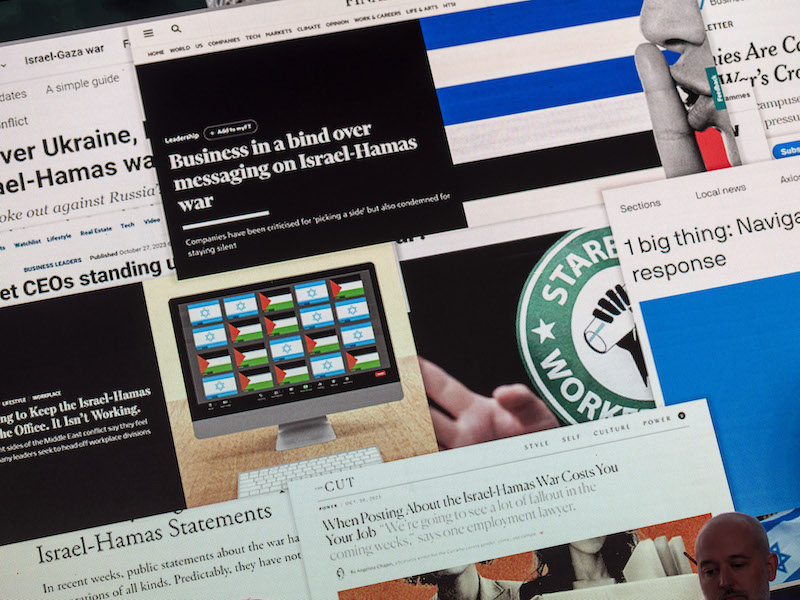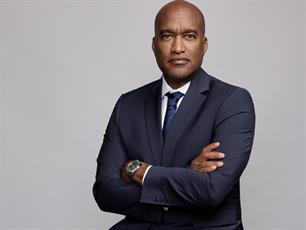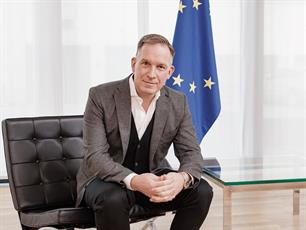Maja Pawinska Sims 08 Nov 2023 // 12:07AM GMT

WASHINGTON, DC — Speakers at the PRovokeGlobal summit this week discussed the rising expectation for multinational companies to respond to geopolitical tension, international conflicts and the rise of mis/disinformation, making a deeper understanding of global geopolitics, history, current events, and culture part of every CCO’s remit.
Pam Jenkins, chief public affairs officer at The Weber Shandwick Collective, said: “For companies and organisations to stay on top, it’s not enough for communications folks to kick this to general counsel – in the past we tracked regulations, legislation, foreign policy and elections and now we need to understand stakeholder opinions.
"The headwinds of geopolitical tensions are consequential to business success and reputation. Silence is not an option – it’s not ok to do nothing, but knowing when and how to communicate is a high stakes gambit. When geopolitical tensions spike, employees and public expect companies to speak up.”
Jenkins continued: “In the past weeks we’ve seen Israel/Hamas turn into fully fledged war, and a humanitarian and hostage crisis. We’ve seen polarization in our workplaces and seen anti-Semitism and Islamophobia at the highest level. When we’re crafting statements on what’s happening in the Middle East, some people have personal ties to the region and so feel deeply through religion, heritage or culture.
"Employees look at what’s happening through the same emotional lens. All of us have been moved or triggered by images and stories we’ve seen.”
Michael Turner, founder of Turner Global Solutions and former head of comms at the US Embassy in Beijing, stressed the need for a deep understanding of history, geography, politics, culture, and religion in navigating geopolitical challenges.
“When we look at how media picked up on the business angle on what’s happening in the Middle East, we saw the same when businesses were thinking about pulling out from Russia when it invaded Ukraine," said Jenkins. "In Israel/Hamas the focus is more on employees, discord and divisions. We also know employees have expectations of businesses to take action or at least say something.”
Ethan Bauley, head of narrative intelligence and senior principal at C-suite advisory Myriant, provided insights on technology-driven analysis of corporate responses, highlighting the importance of empathy and forward-looking concepts like diplomacy in statements.
Jenkins emphasized the global reach of companies and the necessity to understand diverse perspectives. "Companies have employees all around the world, so we need to understand differences in how different countries might see the war, sentiment in different markets and their expectations for employers and companies."
Bauley echoed the significance of generational differences in viewpoints and the role of social media in shaping opinions. He said there was a clear need for better data to understand the narratives permeating across channels.
In terms of preparedness, Turner outlined a comprehensive approach: “There are dozens of geopolitical flashpoints. As a communicator for your enterprise you really need to augment your geopolitical knowledge. The first step is a deep vulnerabilities assessment – look across your enterprise and really figure out where the risks are, through the geopolitical lens.
"Once you identify where you might be vulnerable, the next stage is a stakeholder mapping exercise. Who are the people in your enterprise’s orbit who are really important – do you know what they care about? As diplomats, it’s about building and strengthening relationships, and being in touch with people that matter to you when you don’t need anything from them.
"Another part of stakeholder mapping is geographically where you are – do you know what the geopolitical and societal issues are in areas where they could erupt? Then scenario and contingency planning through that geopolitical lens and scenario planning around misinformation and disinformation.”
Bauley highlighted the need for increased creativity in risk assessment within the industry: "The creativity of the actors in this space is tremendous, and as an industry we need to be more creative about how we are thinking about risk.”
Looking ahead, Turner underlined the growing influence of China on the global stage and urged communication professionals to gain a better understanding of China's geopolitical dynamics.
“Having spent much of the past four years in China, while it’s understandable that we’re focused on the Middle East right now, Beijing has not lost focus on its stated ambitions and China’ws ability to get involved everywhere around the world is growing. As comms people, a better understanding of China is absolutely indispensable.”



































.jpg)

















